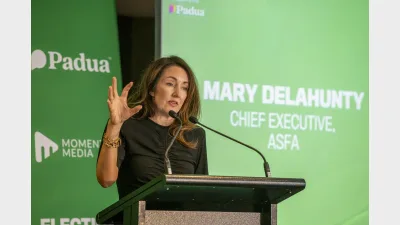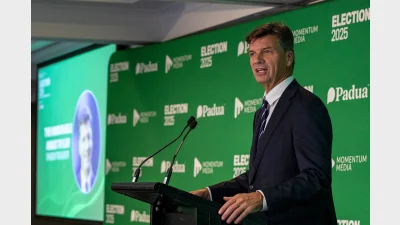Future in doubt as super tax bill dropped from schedule



The Better Targeted Superannuation Concessions was once again dropped from the schedule.
The bill, which was supposed to be debated on 6 February was scrapped on Thursday morning, indicating that the government did not have the numbers to ensure its passage in its current form.
"It’s a sure sign the government knows they don’t have the numbers in the Senate to pass this bill. It was clear from my discussions with Senate crossbench members earlier in the week that their concerns with this legislation run deep," Peter Burgess, SMSF Association CEO, told InvestorDaily’s sister brand, SMSF Adviser.
"Given the unusual design of this tax and the system constraints of some of the large funds, there is no 'quick fix' to the issue of taxing unrealised capital gains which is the primary concern of the Senate crossbench. There is still a mountain to climb but it could also be a sign they [the government] haven’t yet given up on getting the legislation passed."
Also commenting on the circumstances surrounding the super tax bill, FAAA's general manger of policy, advocacy and standards, Phil Anderson, said given there are four sitting days next week, the bill could be back.
"The FAAA is strongly opposed to the Better Targeted Super Concession Bill. We have two primary objections to this measure, including the taxation of unrealised capital gains and the lack of any indexation, so that over time it will impact many more Australians. We also object to the tendency of government to continuously tinker with the tax settings for super, which undermines confidence in the overall superannuation system," Anderson said.
Earlier this week, it was alleged that the government was heavily lobbying crossbenchers to get the Better Targeted Superannuation Bill across the line, even going so far as to pair the bill with a populist measure to try and force its passage.
Burgess, said on the matter: “It seems the government is looking to team the Better Targeted Superannuation Bill with a measure that would reduce surcharges on credit card transactions.
“It’s a populist measure that everyone wants to see get through and it is rumoured the government is going to force the crossbench to vote for the super bill if they want the surcharge measures to also be passed.”
In October, the government announced it would put in place measures to crack down on unfair and excessive card surcharges, alongside a $2.1 million injection for the Australian Competition and Consumer Commission to tackle the issue.
“The government is prepared to ban debit card surcharges, subject to further work by the Reserve Bank of Australia (RBA) and safeguards to ensure both small businesses and consumers can benefit from lower costs,” Prime Minister Anthony Albanese said at the time.
“We are prepared to ban debit card surcharging from 1 January 2026, subject to the consultation undertaken by the RBA, and sufficient steps and safeguards to ensure both small businesses and consumers can benefit from lower costs,” he added.
Burgess on Tuesday said the government has indicated that if the crossbench fails to support the superannuation bill as it currently stands, the surcharge measures will not be implemented.
“The crossbenchers we have spoken with said they won’t support it, but there are a couple that we are concerned may vote with the government,” he said.
“The government has backed the crossbench into a corner. If they don’t vote for the super tax bill, their constituents will miss out on the credit card surcharge measures and some cost-of-living relief,” Burgess added.
Speaking on Sky News last month, Jim Chalmers described the $3 million super tax as an effort to turn “very, very generous concessions for people with big super balances into slightly less generous concessions”.
“We remain committed to it,” the Treasurer said.
“The Senate has expressed a view on that on a couple of occasions, and we’ll keep working to implement it, because this is one of the ways that we fund the cost-of-living help or strengthening Medicare or the things that we want to see in our budget, in the most responsible way.
“We know that our political opponents are digging in for people who’ve got more than $3 million in super. They’re digging in for long lunches and bosses. We’re for cost-of-living help and strengthening Medicare, and we’ve got to pay for it somehow.”
Pushed on the concerns that stakeholders have raised and how realistic it is that the legislation passes the Senate, Chalmers insisted the government “did a heap of consultation, and this was the best way to go about it”.
“Secondly, there are other parts of the superannuation system where unrealised gains are calculated. And thirdly, when it comes to some of the issues raised by farmers and others, it’s already the law that people are supposed to maintain an element of liquidity to be able to meet their tax obligations,” he said.
The Coalition has confirmed that if the tax were to pass ahead of the election, it would repeal it.
Shadow finance minister Jane Hume told Sky News last month, Division 296 “should have been doomed from the start”.
“It’s a brand new kind of tax, one we haven’t seen in Australia before. One that hasn’t worked in any other jurisdiction … This was a terrible idea from go to woe.
“The Coalition has said not only would we vote against it, but should it pass and we get into government, then we will repeal this terrible Labor tax.”
Recommended for you
Aware Super has made a $1.6 billion investment in a 99-hectare industrial precinct in Melbourne’s North which, the fund clarified, also houses the nation’s first privately funded open-access intermodal freight terminal.
ASFA has affirmed its commitment to safeguarding Australia’s retirement savings as cyber activity becomes an increasing challenge for the financial services sector.
The shadow treasurer is not happy with the performance of some within the super sector, telling an event in Sydney on Thursday that some funds are obsessed with funds under management, above all else.
As the Australian financial landscape faces increasing scrutiny from regulators, superannuation fund leaders are doubling down on their support for private markets, arguing these investments are not just necessary but critical for long-term financial stability.












